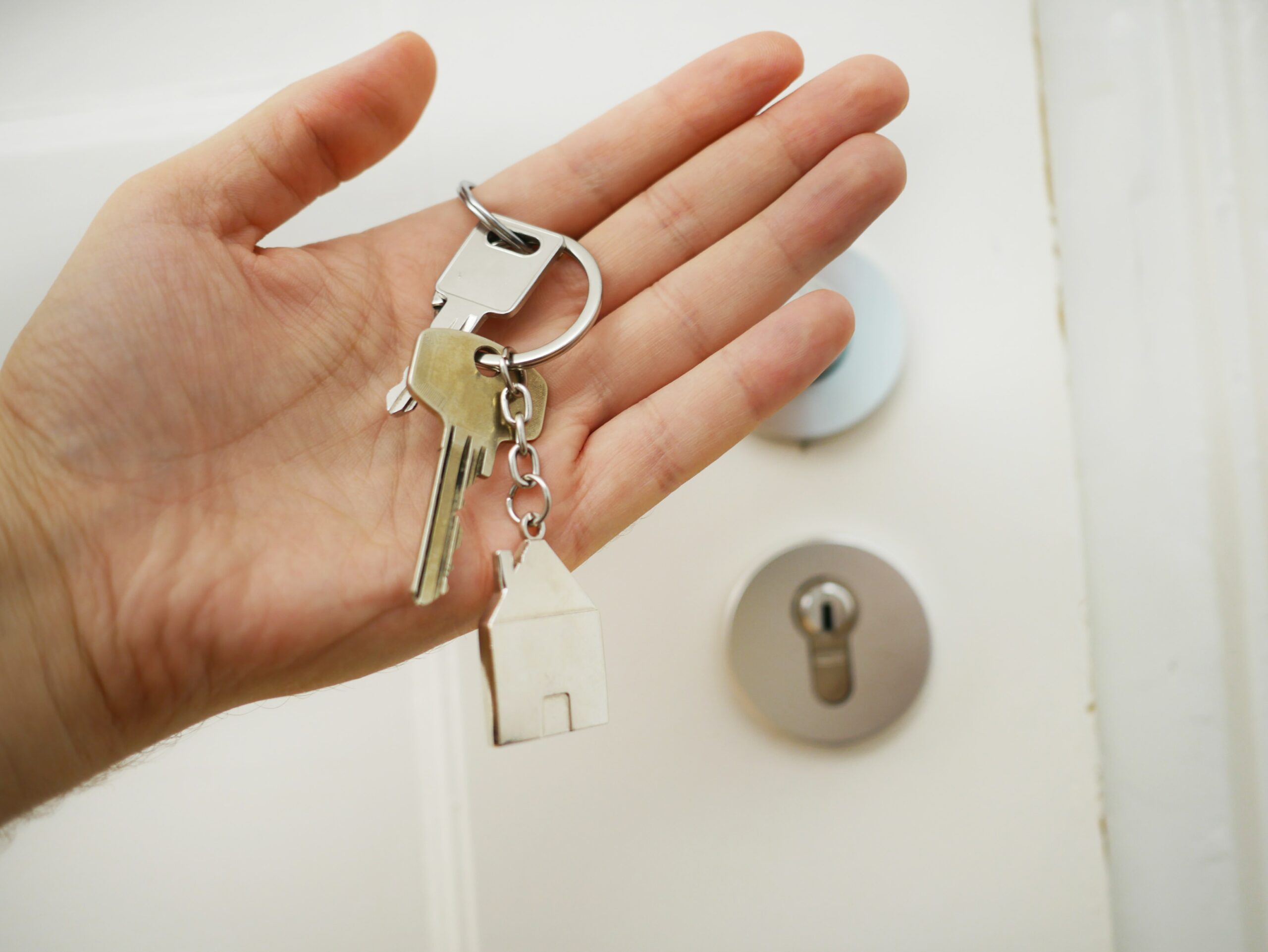Stepping into the world of home ownership can be both exciting and daunting, especially for first-time buyers. With a myriad of loan options, government schemes, and expert advice, navigating the process can feel overwhelming.
Fear not! This comprehensive guide on the best home loan options for first home buyers will demystify the journey, offering valuable insights and practical tips, empowering you to make informed decisions and confidently secure your dream home.
Short Summary
- Understanding home loan options and criteria is essential for first-time buyers to make an informed decision.
- Evaluate features such as interest rates, offset accounts, extra repayments, & redraw facilities in order to maximise savings.
- Seek expert advice from mortgage brokers, financial planners, and conveyancers when applying for a loan.
Understanding Home Loans for First Home Buyers

Embarking on the path to homeownership begins with understanding the fundamentals of home loans. Your unique financial situation will dictate the type of loan best suited to your needs.
By comprehending the various loan options, interest rates, and lending criteria, you will be better equipped to make informed decisions and ultimately secure the most advantageous loan for your circumstances.
Types of Home Loans
When it comes to home loans, there is no one-size-fits-all solution. Owner occupiers have a plethora of options, including:
- Fixed rate home loan: provides the security of a constant repayment amount for a specified period, shielding you from potential interest rate fluctuations.
- Variable rate home loan: offers flexibility with interest rates that can fluctuate over time.
- Split rate home loan: allows you to divide your loan into fixed and variable portions, giving you the benefits of both options.
- Line of credit home loan: provides access to a predetermined credit limit, allowing you to borrow and repay funds as needed.
On the other hand, a variable rate home loan offers the possibility of lower interest rates, along with features such as offset accounts and the capacity to make additional repayments.
A split home loan combines the best of both worlds, allowing you to divide your loan into two accounts – one with a fixed rate and the other with a variable rate.
Evaluating the advantages and disadvantages of each loan type can help you find the perfect match for your financial situation.
Interest Rates
Interest rates have a profound impact on your home loan journey, financial future and can affect your retirement, they will also affect your home loan repayments. Your interest rates determine the amount you need to borrow, the interest payable, and the time it takes to pay off the home loan. Understanding the difference between fixed and variable interest rates is crucial.
Fixed rates : remain constant for a predetermined period, providing certainty in your repayment amounts.
Variable rates: however, can fluctuate over time, potentially saving you money if interest rates decrease.
The Loan to Value Ratio (LVR): is another significant factor, as it affects the amount of lenders mortgage insurance (LMI) you may need to pay.
By carefully assessing interest rates and their implications, you will be better positioned to select the optimal loan for your needs.
Lending Criteria
Lending criteria play a pivotal role in the home loan approval process. Factors such as credit scores, employment history, and deposit requirements are all taken into consideration by lenders.
An adequate credit score, typically above 650, is essential for most first home buyers to be able to acquire a home loan. Additionally, a stable employment history reassures lenders of your ability to meet the home loan repayments.
Deposit requirements vary depending on the lender and the home loan product, but typically range between 5-20%. Demonstrating genuine savings, such as consistent deposits into a savings account, is crucial in gaining lender approval. By thoroughly understanding lending criteria, you can ensure a smooth home loan application process.
Evaluating Home Loan Features

Assessing essential home loan features is integral to selecting the ideal loan for your financial situation. Features such as offset accounts, extra repayments, and redraw facilities can significantly impact your loan experience.
By understanding these features, you can tailor your home loan to best suit your needs and potentially save thousands of dollars in interest payments.
It is important to compare different loan products to ensure you are getting the best home loan deal. Consider the following.
Offset Account
An offset account is a transaction account linked to your home loan, allowing you to reduce interest payments by offsetting your savings against your loan balance. This feature can be particularly beneficial for first home buyers, as it translates your hard-earned savings into tangible savings on your home loan.
However, it’s essential to be aware of any fees associated with offset accounts, as these can vary between lenders and home loan products offered by the lenders.
Extra Repayments
Making extra home loan repayments can significantly reduce the interest paid and shorten the loan term. First home buyers can benefit from the flexibility to increase regular payments, make lump sum payments, or both.
However, it’s crucial to weigh the potential risks, such as limited access to extra funds in the future.
Redraw Facility
A redraw facility allows you to:
- Access extra repayments made on your loan
- Provide flexibility in managing your finances
- Be especially advantageous for first home buyers who may encounter unexpected expenses or temporary setbacks.
By considering these features and their implications, you can secure a loan that caters to your unique needs and goals.
Government Support for First Home Buyers

Navigating the property market as a first home buyer can be challenging; however, various government support initiatives can ease the burden. The First Home Buyers Scheme, First Home Owner Grant, and Stamp Duty Concessions are designed to assist first home buyers in achieving their property dreams.
By understanding and utilising these support systems, you can make the journey to homeownership more manageable.
First Home Buyers Scheme
The First Home Buyers Scheme is a government incentive that allows first home buyers to:
- Purchase their first home with a deposit as low as 5% of the property’s value
- Eliminate the need for costly Lenders Mortgage Insurance
- Accelerate the path to homeownership.
- Acquire a home loan rate that is treated as if you have a 20% deposit
To be eligible, your income must be below a specified threshold, and the property must meet the scheme’s criteria. By taking advantage of the First Home Buyers Scheme, eligible first home buyers can overcome hurdles and secure their dream home sooner.
First Home Owner Grant
The First Home Owner Grant (FHOG) is a government scheme that offers a one-time cash grant to eligible first-time buyers, ranging from $10,000 to $15,000, depending on the state or territory.
The home owners grant is designed to offset the impact of taxes and encourage home ownership. Eligibility criteria vary between states and territories, so it’s essential to familiarize yourself with the requirements in your area.
The FHOG can be a significant financial boost, enabling first home buyers to cover upfront costs and move closer to their property goals.
Stamp Duty Concessions
Stamp duty is a tax levied on the purchase of property and land, which can add substantial costs to the home buying process. Most states and territories in Australia offer stamp duty waivers or discounts for first home buyers, thereby easing the financial burden of homeownership.
However, property price caps apply, so it’s crucial to be aware of the relevant thresholds in your state or territory before applying for a concession or exemption.
By utilising stamp duty concessions, a first home owner occupier can minimise upfront expenses and focus on securing their dream home.
Saving for Your First Home Loan Deposit

Saving for a home loan deposit is often one of the biggest challenges faced by first home buyers. It requires dedication, financial discipline, and a clear plan to accumulate the necessary funds.
By building a savings plan, managing expenses, and understanding genuine savings requirements, you can successfully save for your first home loan deposit and be one step closer to owning your dream home.
Building a Savings Plan
Creating a savings plan is essential to achieving your home loan deposit goal. Start by setting a budget, tracking your expenses, and establishing a financial objective.
Ensure your budget includes a savings target, and consider setting up automatic transfers to a dedicated savings account.
By consistently monitoring and adjusting your plan, you can stay on track and reach your deposit goal in a timely manner.
Managing Expenses
Effectively managing expenses is crucial to saving for your first home loan deposit. Review your spending habits and identify areas where you can cut costs, such as dining out, entertainment, and unnecessary purchases.
Additionally, consider ways to reduce energy costs by using energy-efficient appliances and being mindful of your consumption. By taking control of your expenses, you can make significant progress towards your deposit goal.
Genuine Savings
Lenders often require first home buyers to demonstrate genuine savings, which refers to funds accumulated over a period of time, typically spanning a minimum of three months.
This requirement reassures lenders of your capacity to manage finances and meet loan repayments.
By focusing on building genuine savings through consistent deposits, you can improve your chances of loan approval and move closer to homeownership.
Applying for Your First Home Buyer Loan

Once you have saved for your deposit and researched loan options, it’s time to apply for your first home buyer loan.
This process involves knowing your borrowing power, seeking pre-approval, and comparing loan products to find the best fit for your financial situation and goals.
By following these steps, you can confidently secure the ideal home loan and make your dream of homeownership a reality.
Knowing Your Borrowing Power
Determining your borrowing power is essential in the home loan application process. Your borrowing power is the amount a lender is willing to provide, based on your income, expenses, and credit history.
By understanding these factors, you can tailor your property search to homes within your budget and ensure a smoother loan approval process, keeping in mind the property value.
Having a good understanding of your borrowing power can help you make informed decisions when it comes to purchasing. This is where a professional mortgage broker will add value to the process.
Seeking Pre-Approval
Seeking pre-approval for a home loan is a crucial step for first home buyers. Pre-approval provides an indication of the amount a lender is willing to lend, allowing you to:
- Focus your property search on homes within your budget
- Have the confidence to make an offer on a property
- Potentially negotiate better terms with the seller.
Ensure you obtain pre-approval from multiple lenders to compare rates and terms, and consider seeking advice from a mortgage broker or financial planner.
Comparing Loan Products
Selecting the right loan product is crucial to securing the best possible terms for your financial situation. When comparing loan products, consider the following factors:
- Interest rates
- Fees
- Repayment types
- Features
- Loan terms
By thoroughly evaluating your options and understanding the implications of each loan product, you can confidently choose a loan that suits your needs and propels you towards homeownership.
Expert Advice for First Home Buyers

Navigating the home buying process can be complex; fortunately, expert advice is available to help guide you through the journey.
Mortgage brokers, financial planners, and conveyancers can offer valuable insights and support. They can ensure you make informed decisions and secure the best possible loan for your circumstances.
Mortgage Brokers
Mortgage brokers are specialists with access to home loans from a variety of lenders. They can recommend suitable options and assist you with the entire application process, increasing your chances of securing the best loan for your needs.
Additionally, their services are often free for borrowers, making them a valuable resource for first home buyers seeking expert assistance.
Financial Planners
Financial planners can assist first home buyers in the following ways:
- Understanding their financial situation
- Developing a plan to save for a home loan deposit
- Offering guidance on budgeting and managing expenses
- Selecting the most suitable loan products and government support options
By working with a financial planner, you can gain a clearer understanding of your financial goals and develop a strategy to achieve them.
Conveyancers
Conveyancers are legal professionals who specialize in the transfer of property ownership. They can help first home buyers navigate the legal aspects of purchasing a home, offering advice on contracts, title searches, and other legal matters.
By engaging a conveyancer, you can ensure a smooth and legally compliant property transaction, minimizing potential issues and complications.

Summary
Embarking on the journey to homeownership can be an exciting yet challenging experience. By understanding home loans, government support schemes, and expert advice resources, you can confidently navigate the process and secure the ideal home loan for your needs.
With determination and a clear plan, your dream of owning your first home is well within reach. So go forth, and make your homeownership dreams a reality!
Frequently Asked Questions
Can I buy a house with $10 000 deposit?
It is possible to buy a house with a $10,000 deposit depending on the property value and loan amount. If the required loan amount is larger, a guarantor may be necessary for approval.
What is the first home guarantee 2023 2024?
The First Home Guarantee (FHBG) offers up to 15% of the value of the property being purchased as a guarantee to a Participating Lender, with 35,000 places available from 1 July 2023 to 30 June 2024.
Eligibility criteria apply.
What is the most suitable home loan type for first home buyers?
For first home buyers, a fixed rate loan may be the most suitable option as it offers stability and predictability for your monthly payments.
Variable rate and split rate loans are other options that should be considered depending on individual circumstances.
We always recommend that you seek professional advice when making financial decisions that can have long term affects on your future. Google mortgage broker near me or top 10 mortgage brokers and take a look at the online reviews and reach out to some on these lists so you can the expertise available in your area.
How can I determine my borrowing power?
To determine your borrowing power, review factors such as your income, expenses, and credit history. This can give you an estimate of how much a lender is willing to provide. Use an online calculator which can give the information required to guide your next steps
What government support is available for first home buyers?
First home buyers in Australia can take advantage of the Home Loan Deposit Scheme, First Home Owner Grant and Stamp Duty Concessions to help them purchase a property.
These schemes are designed to make it easier for first home buyers to get into the property market and can provide significant savings.
The Home Loan Deposit Scheme allows first home buyers to purchase a property with a deposit of as little as 5%.
There is also a 2% scheme designed to help single parents get back into the property market, speak to one of OurTop10 mortgage brokers near you.
FAQs
A first home buyer loan is a type of mortgage designed specifically for individuals purchasing their first home. These loans often come with benefits like lower interest rates, government grants, and reduced fees to make buying a home more accessible.
First-time buyers can choose from various loan options, including fixed-rate loans, variable-rate loans, interest-only loans, and low deposit loans. Each type has its advantages and considerations based on the buyer’s financial situation and market conditions.
To qualify for a first home buyer loan, you typically need to meet certain criteria such as having a stable income, a good credit score, and the ability to provide a deposit. Additionally, you may need to be an Australian citizen or permanent resident and meet specific lender requirements.
Yes, the Australian government offers several grants and incentives for first home buyers, such as the First Home Owner Grant (FHOG), stamp duty concessions, and the First Home Loan Deposit Scheme. These benefits vary by state and territory.
The First Home Owner Grant (FHOG) is a government initiative that provides a one-off payment to eligible first-time home buyers. The amount and eligibility criteria vary by state and territory, but it can significantly reduce the overall cost of purchasing a home.
The deposit required for a first home buyer loan typically ranges from 5% to 20% of the property’s purchase price. Some lenders offer low deposit loans, which may allow you to borrow with a deposit as low as 5%, often requiring lender’s mortgage insurance (LMI).
Lender’s Mortgage Insurance (LMI) protects the lender in case you default on your loan. It is usually required if your deposit is less than 20% of the property’s purchase price. The cost of LMI can be added to your loan amount or paid upfront.
Choosing the best home loan involves comparing interest rates, loan features, fees, and repayment options. Consider your financial situation, future plans, and preferences. Consulting with a mortgage broker can also help you find a loan that suits your needs.
Before applying for a home loan, assess your financial stability, budget for additional costs like stamp duty and legal fees, check your credit score, and gather necessary documentation. It’s also important to consider your long-term financial goals and the loan’s impact on your lifestyle.
While it can be challenging to get a home loan with bad credit, some lenders specialize in bad credit mortgages. These loans may come with higher interest rates and stricter terms. Improving your credit score before applying can increase your chances of approval and better loan conditions.

MANSOUR SOLTANI
With over two decades of experience in Australia’s real estate sector, Mansour has built a career specialising in the acquisition and sale of investment and commercial properties, spanning major metropolitan hubs and regional areas. As the founder and owner of a finance brokerage firm, he manages a loan portfolio exceeding $100 million while serving a broad range of clients nationwide.
A frequent contributor to money.com.au, Mansour has developed a deep understanding of diverse investment strategies, enabling him to provide valuable, well-informed perspectives on market trends and opportunities.

